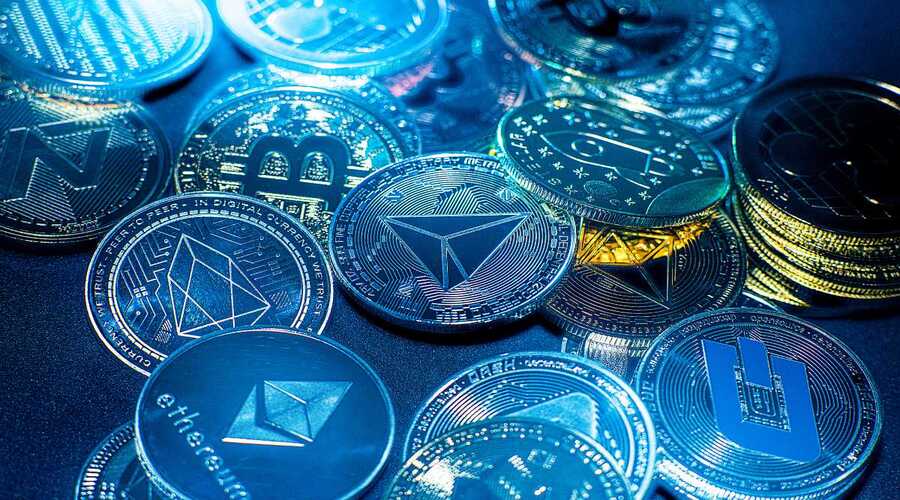
Introduction to Altcoins: Why Do They Matter?
When most people think of cryptocurrency, they think of Bitcoin. However, Bitcoin is just one of many cryptocurrencies, and the term “altcoin” refers to any cryptocurrency that is not Bitcoin. In this article, we will provide an introduction to altcoins, including what they are and why they matter. What Are Altcoins? Altcoins are any cryptocurrencies that are not Bitcoin. They are designed to address some of the limitations of Bitcoin, such as scalability, transaction speed, and privacy. Some popular altcoins include Ethereum, Litecoin, Ripple, and Bitcoin Cash. Why Do Altcoins Matter? Altcoins matter because they offer different features and benefits than Bitcoin. For example, Ethereum is known for its smart contract capabilities, which allow developers to create decentralized applications on the Ethereum blockchain. Litecoin is known for its faster transaction speeds and lower fees than Bitcoin. Altcoins also provide diversification opportunities for cryptocurrency investors. By investing in a variety of altcoins, investors can spread their risk and potentially earn higher returns than by only investing in Bitcoin. Different Types of Altcoins There are several different types of altcoins, including: Privacy Coins Privacy coins, such as Monero and Zcash, are designed to provide increased privacy and anonymity for users. They use advanced encryption techniques to hide the sender, recipient, and transaction amount of each transaction. Stablecoins Stablecoins, such as Tether and USD Coin, are designed to maintain a stable value relative to a traditional currency, such as the US dollar. This makes them ideal for use in trading and for buying goods and services. Utility Tokens Utility tokens, such as Binance Coin and Basic Attention Token, are used to access a specific product or service, such as a cryptocurrency exchange or online advertising platform. Security Tokens Security tokens are tokens that represent ownership in a real-world asset, such as a stock or bond. They are designed to comply with securities regulations and provide investors with a way to invest in traditional assets using cryptocurrency. Altcoins vs Bitcoin Altcoins and Bitcoin have several differences, such as their underlying technology, transaction speed, and scalability. While Bitcoin remains the most popular cryptocurrency, altcoins are gaining in popularity due to their unique features and benefits. Investing in Altcoins Investing in altcoins can be a profitable strategy, but it’s important to do your research and understand the risks involved. Altcoins can be more volatile than Bitcoin, and their value can fluctuate rapidly. Diversifying your portfolio with a variety of altcoins can help spread your risk and potentially earn higher returns. Altcoins and Decentralized Finance Decentralized finance (DeFi) is a growing segment of the cryptocurrency market that uses blockchain technology to provide financial services without the need for traditional financial institutions. Many altcoins, such as Ethereum, are used as the underlying technology for DeFi platforms and applications. Altcoins and NFTs Non-fungible tokens (NFTs) are a type of digital asset that use blockchain technology to verify ownership and authenticity. Many altcoins, such as Ethereum, are used as the underlying technology for NFT platforms and marketplaces. Altcoins and the Environment Cryptocurrency mining can have a significant impact on the environment due to the high energy consumption required to power mining operations. Some altcoins, such as Cardano, are designed to be more energy-efficient and eco-friendly than Bitcoin. Altcoin Mining Altcoin mining is the process of using computing power to verify transactions and earn rewards in the form of new altcoins. Altcoin mining requires specialized hardware and software, and can be more profitable than Bitcoin mining due to lower competition. Altcoins and Gaming Altcoins are increasingly being used in the gaming industry, where they are used to purchase in-game items, reward players, and enable peer-to-peer transactions. Some popular altcoins in the gaming industry include Enjin Coin and WAX. Altcoins and Cross-Border Payments Altcoins can be used to facilitate cross-border payments, as they offer faster transaction speeds and lower fees than traditional financial institutions. Ripple, for example, is an altcoin that is specifically designed for cross-border payments and is used by several major financial institutions. Altcoins and Social Media Altcoins are being used in the social media industry to reward content creators and facilitate peer-to-peer transactions. Some popular altcoins in the social media industry include Steem and Hive. Altcoins and the Future of Money Altcoins represent a new and innovative approach to money that is decentralized, secure, and efficient. As the cryptocurrency market continues to grow and evolve, altcoins will likely play an increasingly important role in shaping the future of money. Altcoins and Privacy Privacy is a major concern for many cryptocurrency users, and several altcoins are designed to provide increased privacy and anonymity. For example, Monero uses advanced encryption techniques to hide the sender, recipient, and transaction amount of each transaction. Altcoins and Governance Altcoins often have unique governance structures that allow users to participate in decision-making and influence the direction of the project. For example, Dash has a decentralized governance system that allows users to submit proposals and vote on important decisions. Altcoins and Scaling Scaling is a major challenge for many cryptocurrencies, including Bitcoin. Several altcoins, such as Litecoin and Bitcoin Cash, have been designed to address this issue by improving transaction speeds and reducing fees. Altcoins and Smart Contracts Smart contracts are self-executing contracts that are programmed to automatically execute when certain conditions are met. Several altcoins, such as Ethereum and EOS, have been designed specifically to support the creation and execution of smart contracts. Altcoins and Interoperability Interoperability is the ability for different blockchains to communicate and interact with each other. Several altcoins, such as Cosmos and Polkadot, have been designed to facilitate interoperability between different blockchains and networks. Conclusion In conclusion, altcoins are a diverse and growing segment of the cryptocurrency market. By offering different features and benefits than Bitcoin, altcoins provide investors with diversification opportunities and potential higher returns. Different types of altcoins, such as privacy coins, stablecoins, utility tokens, and security tokens, offer unique advantages for users and investors. As the cryptocurrency market continues to grow and evolve, altcoins will likely play…






